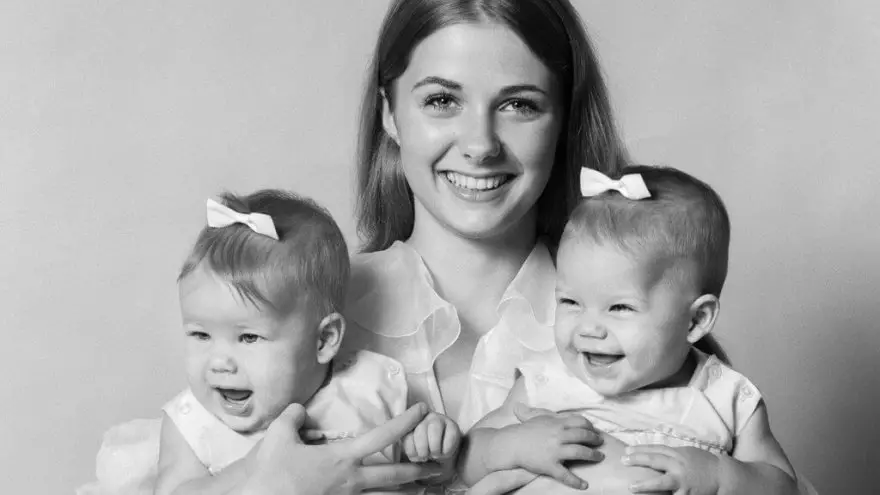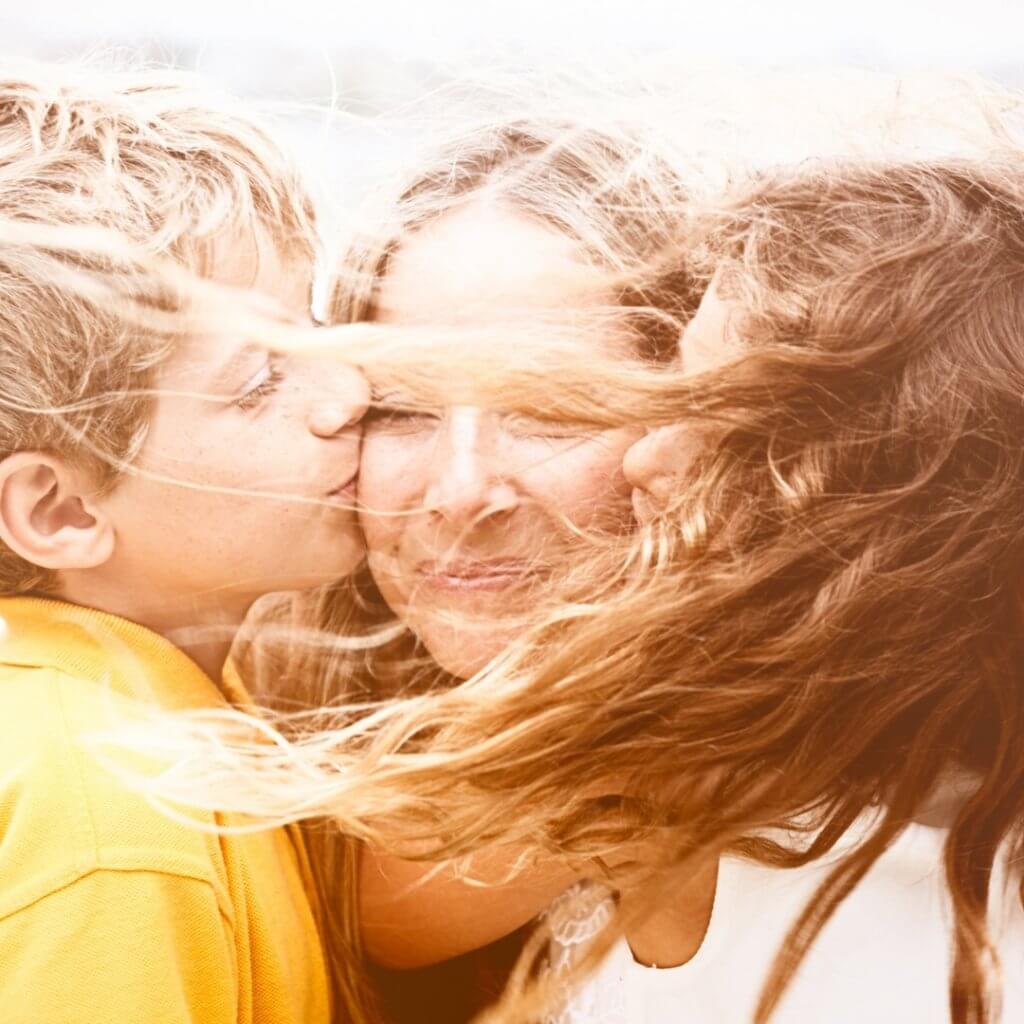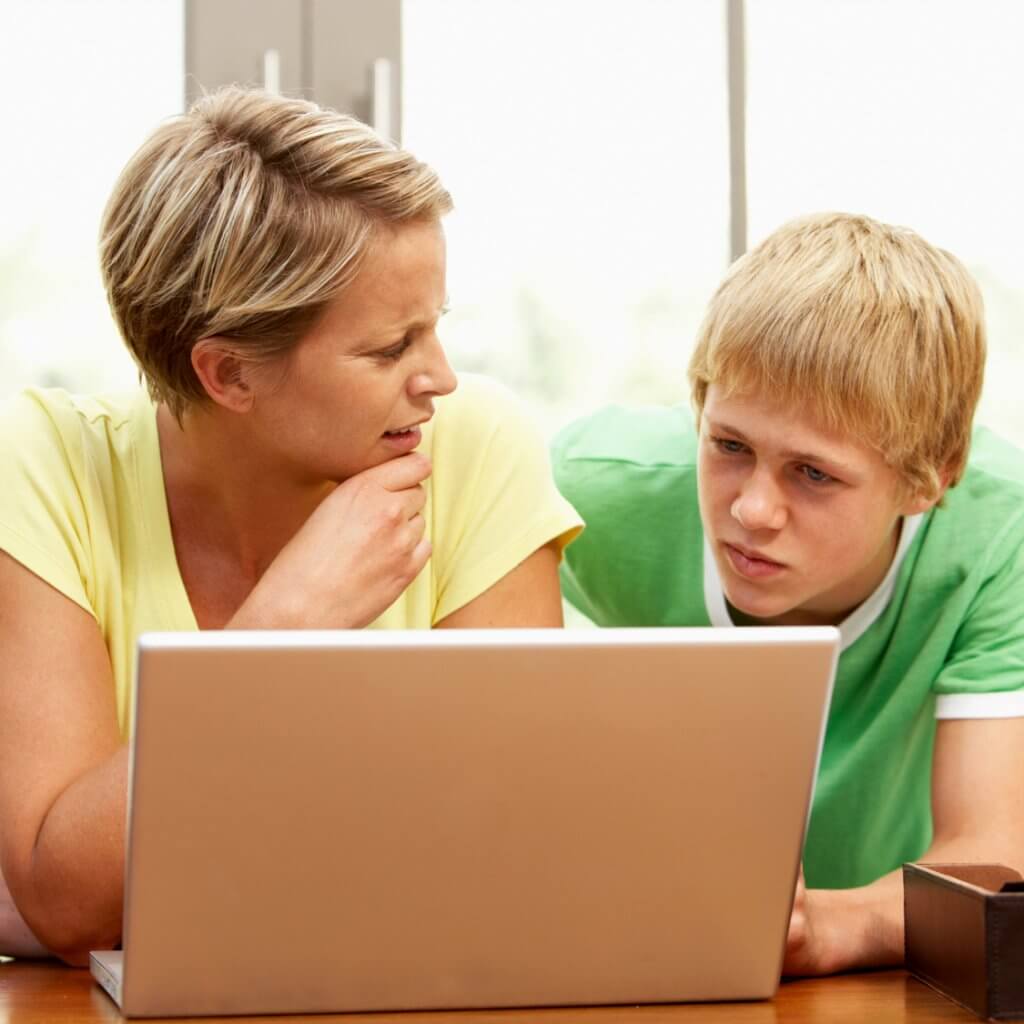Eleven Best Parenting Quotes in 2024

Being a parent is a truly inspiring experience. Our children challenge us (hopefully not on purpose) to become stronger, kinder, compassionate, and more patient human beings. Good parenting is tough work: it’s the kind of work that requires us to look inward and take some time for serious reflection, just as much as it requires us to think quickly on our feet with little less than a moment’s notice.
While parenting is undoubtedly a joy, sometimes we feel like it’s only killing us and we forget that it makes us stronger. When we’re up to our ears in dirty diapers, in the grips of our children’s temper tantrums, and trying our best to motivate our kids on days where we struggle to get out of bed and face the world—it can sometimes cause us to lose some perspective and to lose sight of all the wonderful things that make parenting such a rewarding, life-affirming, and fun experience.
Sometimes being a parent makes you feel like you’re sinking into quicksand and you have nothing to grab onto to pull yourself out. What’s worse is that sometimes as parents we feel utterly hopeless and alone in our parenting experience; we feel we’re the only ones struggling, that it’s only us who can’t seem to get it right, and in some instances, we may feel like a total failure. Well, what you have to remember as a parent is that you aren’t alone at all.
Not only does every parent have to battle through similar trials, but every parent also has something unique to say about their experience (even if the experience isn’t all that unique). When you feel like you’ve reached your breaking point and that there’s no one to turn to, just remember that you can sometimes turn to little words of wisdom from other parents.
Sometimes just hearing a little insight from other parents can help you regain your bearings and help to remind you of all that you’ve accomplished as a parent, and all that you can continue to accomplish if you just try your hardest and keep in mind the big picture.
Not only can the insights of other parents help to you to gain a sense of camaraderie that allows you to rejuvenate your strength, but these insights can inspire you to do even more and make you a better parent. Let’s take a look at some of the best parenting quotes to help you remember that you’re far from alone and help you put parenting into perspective.

“Having a baby dragged me, kicking and screaming, from the world of self-absorption”—Paul Reiser, actor and comedian.
Every parent knows that having a child changes their lives forever. One of the life changes that occur is that you more or less give your life to someone else—your child. This is not to say that you totally give up your life, but you certainly have to give more of yourself to another human being (your kid) than you may have ever given before. When you have a child, you realize more strongly than ever that the world isn’t just about you. The world’s never been strictly about you to begin with, and that becomes even more true once you bring life into this world.
Just think about all that you’ve given to your kid: unconditional love, perpetual emotional support, and all the sweat and toil you put in to make sure your child has a full stomach and a roof over her head. All that work you’ve done—none of it is was for you. Sure, you’re doing all this for the sake of your family as a whole, but whole is the key word.
You can only be part of a whole, you aren’t the whole in its entirety. And while you shouldn’t really try to contribute to the whole of anything just because it makes you feel good about yourself, you should at least remember that you have the courage and kindness to put your time, energy, and love into securing the wellbeing of someone else’s life; you should be proud of that. Devoting yourself to the flourishing of another human being takes strength and determination, and above all it means you have to be selfless—and being selfless can be pretty hard.
As parents, we all have days where we want to live only for ourselves and leave behind what can sometimes feel like a burden (taking care of others—namely our children). But you should always keep in mind that being a parent means you’re more than capable of taking care of someone other than yourself.
“At every step the child should be allowed to meet the real experience of life; the thorns should never be plucked from his roses.”—Ellen Key, writer.
We all want to protect our children. The world can be a hard and cold place—and seeing as how we all want our children to be happy—it makes total sense that we would want our children to live a life that’s devoid of pain and suffering. Unfortunately—no matter how hard we try—shielding our kids from the difficult hardships of life is just something we can’t do; it’s an impossibility. Not only is it an impossibility, but it’s something that in the end, won’t even do our children any good. We can only protect our children within our limits—not as a rule of thumb—but just because there’s only so much we have control over.
Sure, there’s a fair amount of control you have over your child at one point in time. You can decide what she eats, what media she’s allowed exposure to, or something like when she goes to bed (hopefully). But what you can’t do (only because it really is out of your hands) is keep them from learning harsh truths about life.
It’s heartbreaking to think about, but your child will one day have to come face to face with sadness, disappointment, anguish, and fear. All of these complicated emotions aren’t always going to be the result of something that happens directly to your child. There’s going to be a point in time when your kid just looks at the world around her, and sees others suffering and struggling simply because life is hard, daunting, and confusing. When you realize others are suffering, you suffer too; it hurts to see that life chews so many people up and then spits them out.
But here’s the thing: no matter how much you want to keep your child safe from her own hardships and the hardships of human life in general, you just can’t keep your kid in a bubble. This doesn’t mean you should just kick your kid out in the street to fend for herself and let her experience every soul-crushing aspect of life, but you have to remember that you can’t keep blinders on your child’s eyes forever.
Your child needs to experience every aspect of life—from the wondrous blisses to the oppressive and unbearable difficulties. If your child never sees or experiences every facet of what it means to be human, how can you expect your child to learn, grow, and become a strong and independent individual? We can’t always exhaust ourselves in efforts to shelter our children from pain and confusion; otherwise our children would never have the opportunity to evolve and develop emotional maturity. You can try your hardest to be there for your child and offer her wisdom in times of turmoil, but you’re not going to be able to prevent her from witnessing horror and struggling every now and then; trying to prevent it by blocking it out isn’t good for you, or for your child.

“Affirming words from moms and dads are like light switches. Speak a word of affirmation at the right moment in a child’s life and it’s like lighting up a whole roomful of possibilities.”—Gary Smalley, family therapist.
There might be times when you feel like there’s nothing you can do or say to help your child realize her full potential. Really though, it isn’t that hard. The best way you can help your kid accomplish her goals, or help her to realize what it is she wants from life—all you have to do is encourage your kid and validate her as a human being with her own unique thoughts and feelings.
Let’s say your child does really well on a science project. In this instance, you can say “Wow, you really did a great job on that project. It was your hard work and your intelligence that enabled you to do so well, and I’m proud of you for that.” A lot of times—especially when your kid is young—your kid is going to internalize what it is you say to her (although how she internalizes it could be very different from the way in which another kid does).
But for the sake of our example, let’s say your kid interprets what you say as telling her that she’s really good at science. If this is the case, your kid might develop a strong interest in science and want to be a scientist, simply because she feels it’s a subject she understands, and a field that she could potentially bring her much success and fulfillment. Without your affirmation of her efforts, she might not have even considered the possibility of being a scientist.
Most people like to do what they’re good at doing. If you offer your kid some basic encouragement, and let her know that she is in fact good at what she does—she’s more likely to enjoy what it is that she’s doing, and more likely to try and succeed. Of course, you can’t expect this to be the case every time, but a little encouragement and affirmation can go a long way in shaping how your child feels about herself, and subsequently shaping parts of her identity.
“I think it’s necessary to let kids get bored once in a while—that’s how they learn to be creative.”—Kim Raver, actress.
It’s very possible that you try your hardest to keep your kid constantly stimulated. It’s good for kids (or anyone) to stay busy, active, engaged, involved, and engrossed. Unfortunately, though, life can get boring; there’s just nothing you can do about that.
When your kid gets bored, you may feel it’s your responsibility to keep her occupied in one way another. Of course, you want to have fun with your kid and keep her sharp, but it’s not always necessarily you job to do so. Sometimes, you just have to let your kid fight through her boredom and let her figure out what she wants to do on her own.
Maybe you have a day when you’ve finally got some alone time, when all of a sudden, your kid comes up to you and tells you that she’s bored. Your stomach might drop while dread washes over you as you can slowly see that alone time slip right through your fingers; that doesn’t have to be the case. It’s always fun to come up with new activities or games with your kid, but when you’re not up for it, just say to your kid “You know what? Just go ahead and find something to do on your own. I’m sure you can figure out something—you’re a creative kid and you don’t necessarily need my help here.”
Your kid might be shocked at the initial suggestion—and it may seem sort of strange at first to just leave your child to her own devices—but once the suggestion really sinks in, your kid will have no choice but get her gears going on her own. When it comes down to it, you can’t always think for your kid, and forcing her to figure out how to entertain herself or keep herself busy is a great way to get her to think for herself.
When teaching your kid how to think for herself, it doesn’t always have to be in the instance of a tough life lesson. Sometimes teaching your kid to think for herself can be as simple as saying that she’s capable of using her own imagination and her own mind when she plays. When your child realizes it’s not (always) your responsibility to provide a cure to her boredom, she’ll understand that she’s her own person who has the ability to make her own decisions and think independently.
“Treat a child as though he already is the person he’s capable of becoming”—Haim Ginott, school teacher, parent educator, child psychologist, psychotherapist.
As parents, we all have hopes and dreams for our children. We constantly hear about realizing and fulfilling potential (whether that be for children or adults), and that’s something we all take very seriously. It’s both understandable and important that we keep the idea of potential in the back of our minds, and that we realize that all of life (including parenting) is a process, but we also have to remember not to look at the lives of ourselves and of our children as something that exists only in the future.
When you think about it, a capacity for potential means that the qualities that produce that potential are already present, and we have to keep this in mind when we think about our children and their futures as independent individuals. If you only treat your child as the person she might one day become, your kid will never get the chance to appreciate who she already is—meaning your kid will never be at a point where she thinks she’s good enough, or that she’ll never be able to meet your expectations or anybody else’s simply because of her own faults and ineptitudes that she feels she possesses.
You always want to help your kid to strive to do more, but you also have to remember to let your child know that you’re always proud of her—that you’re proud of her currently and you aren’t just sitting around waiting to be proud. It’s important that your child has a strong self-esteem, and she’s never going to feel good about herself if you tell let her think that she has no reason to feel good about herself until a later point in time.

“It is easier to build strong children than to repair broken men.” –Frederick Douglas, human rights activist, abolitionist, writer.
While there are certainly times in your parenting career when you have to loosen the reins a bit and let your child learn for herself, you still have to remember that she can’t build her character all on her own. Good parenting means doing it well right from the start; you can’t just decide to flip on the good parent switch later on in your child’s life.
There are a variety of approaches to good parenting, but regardless of your own approach, you still have to remember that these approaches need to be put into practice right from the get-go (your approaches will probably change over time, but that’s ok). Sure, everyone needs to come to their parents for advice and guidance even once they reach the age of adolescence and adulthood—and you can be there for your kid during her adult years—but you need to make sure you’re helping your child in your own unique way throughout the entirety of her life. Simply waiting to help your child once she faces the crises of adulthood just isn’t going to cut it.
You don’t want to control every aspect of your child’s life in an overbearing way, but it’s still important that you’re present throughout your child’s life, and that you be a good influence on her from the very beginning. Your kid looks up to you, and if you don’t help her build strong character when she’s young, there’s no telling how she’ll react to the world once she realizes life isn’t all about fun and games. Your kid is going to need a strong foundation to navigate through this wild and crazy world, and it’s up to you to provide her with that foundation. If you don’t do it, then who will?
“We cannot always build the future for our youth, but we can build our youth for the future.”—Franklin D. Roosevelt, 32nd President of the United States.
Good parenting is definitely about making a positive impact in our children’s lives, but that in turn means making a positive impact on the world in which we live. Shaping the future is all about shaping the present—and while you don’t always have control over what happens later—you can at least have some control over what happens now, and that includes instilling the value of good virtues in your child.
Really think about what it means to bring life into this world: it means putting a person on this earth who interacts with the world and actually makes a difference (whether positive or negative) in society. Having a child is a huge responsibility on so many levels, and one of those levels of responsibility includes making sure your kid grows up to do the right thing.
With the right upbringing our kids can accomplish anything, be anything they want, and do everything they can to make the world a better place. It may seem kind of strange, but as parents, it’s our duty and moral obligation—to both our children and our fellow human beings—to make sure that our kids know what it means to make the right decision and make significant, positive contributions to each and every life.
That all may sound daunting, but there’s no reason to be intimidated. We all have to do our part, and sometimes doing our part means raising thoughtful, motivated, and compassionate kids.
“It’s not only children who grow. Parents do too. As much as we watch to see what our children do with their lives, they are watching to see what we do with ours. I can’t tell my children to reach for the sun. All I can do is reach for it myself.”—Joyce Maynard, journalist, novelist.
Being a positive influence on your child is all about the actions you take, and your kid is going to be more likely to follow in your footsteps if you actually use your feet to walk as opposed to just using your mouth to talk. You have to remember that up to a certain point in your child’s life, that you’re the only one who sets examples. In parenting—just like any other part of life—it’s what you do that counts, not what you say. You can tell your kid to act in whatever way you please, but if you don’t act that way yourself, your kid isn’t going to believe that you mean what you say or take you seriously.
If you want your kid to try hard to achieve her goals, why would she do so if you don’t try yourself? Yes, you are going to influence the way your child thinks, but your child isn’t stupid; if she sees that you don’t practice what you preach and try to be a better person yourself, then she’ll have no respect for you, and she won’t feel the need to accept any of your guidance.
The reason your child will feel no need to accept your guidance, is because just telling her what she should do isn’t really giving her guidance at all. If you tell her to act strong, you need to be strong; if you want her to act kind and compassionate, show kindness and compassion; if you want her to try her best, then you have to try your best too. If you continue to fight bravely through life, your kid will do the same. If you give up, admit defeat, and cease to push forward—your child will remain stagnant, or she might even go in the wrong direction.

“For me, being a mother made me a better professional, because coming home every night to my girls reminded me what I was working for. And being a professional made me a better mother, because by pursuing my dreams, I was modeling for my girls how to pursue their dreams.”—Michelle Obama, former First Lady of the United States, philanthropist.
Being a parent is hard enough as it is, but being a working mother or father just makes it even tougher. You have the long hours at work, the long hours of taking care of your kid when you get home, and on top of that you have to worry about both. But, being a fulltime professional and parent is only going to make you a stronger individual, and it sets a good example for your child.
Think about it: You work all day just to be able to provide for your child, and when you come home you devote yourself to being there for your kid as she learns and grows. How could your child not see the value in that? Your kid’s not going to understand right away (not as a baby or toddler), and you can’t really do much about that. And of course, there’s never any sense in berating your child with the typical, “do you know everything I do for you!”, but in time your kid is going to understand all the hard work you put in to make sure she can flourish in every way possible.
If you just continue to put forth the effort to do both your jobs well (both as a parent and a professional) your kid will not only understand what you do for her, but she’ll understand the importance of trying her hardest and all that comes from strength and perseverance. Your child will say to herself, “My parent has tried so hard to make sure I get the quality of life that I deserve. I know it deserve it because I’m clearly worth all that hard work. Why would my parent put so much effort into something that isn’t worthwhile? If I always put my all into everything that I do, I can be just as successful as my parent, and I can make my life worth living by having things to be proud of.”
If you want your child to have a sense of pride, you have to have a sense of pride in yourself. Pride is something you have to work for, you aren’t just born with it. Show your kid the value of pride, and show your kid how to work to achieve that pride; she’ll be proud of you, and she’ll have good reason to believe that making both you and her proud is absolutely worth it.
“Nothing you do for children is ever wasted. They seem not to notice us, hovering, averting our eyes, and they seldom offer thanks, but what we do for them is never wasted.” –Garrison Keillor, voice actor, radio personality, author.
There’s so many times where as parents we just want to give up because we feel like our efforts are being wasted simply because we think our children don’t care, don’t understand, or that they don’t appreciate all the blood, sweat, and tears. You have to remember it only sometimes seems that way, it’s not merely the way it is.
Maybe there’s a particular lesson you’ve tried to teach your kid and the idea just doesn’t seem to be getting through to your child, or maybe your kid disagrees with your particular perspective. Well, even if your child doesn’t understand immediately, she’ll still remember that you’re trying—that for some reason or another you’re putting work into trying to teach her something.
Your kid may not get it now, but later she’s most likely going to think, “Why exactly was my parent pushing that idea so hard? Maybe there’s actually some value in it.” When you try hard for your kid, she’s eventually going to see that there must be some reason for your efforts, and she’s going to reevaluate the motivation behind those efforts.
If you’re worried that your child is ungrateful for what you do, don’t be. This is another example of how your kid will come to appreciate later all that you do for her. Can you really expect a toddler to express gratitude for everything that you do? You have to remember that kids are in their own world, they don’t understand right away that they’re part of something bigger than themselves. In time, everything you do for your child is going to be understood by her—or at the very least she’ll understand you did something; your kid isn’t going to forget what you do later on just because she doesn’t realize it now.
We as adults don’t know or understand everything, and we can’t expect our children to understand right away either. You’re not always going to get immediate gratification as a parent. It’s just like planting a tree; it takes a long time for those seeds to grow into the tree, but it grows eventually. The same thing is true of children and human beings.
We have to always keep in mind that parenting is a process, and sometimes it takes a while to see the fruits of our labor. Yes, you want your child to be happy in the present, but you also want to see your child live a fulfilled life as she grows older—you’re just going to have to wait a bit for that to come into fruition.

“There is no such thing as a perfect parent. So just be a real one.”—Sue Atkins, television and radio personality with a specialty in parenting.
This piece of advice may be the best of them all. No one is perfect, and that means there’s no perfect way to parent. You’re going to struggle, and you’re going to feel like you’re doing it wrong. But think about this: if you weren’t struggling, and if you weren’t trying, then why even call yourself a parent?
Just because you have a child, that doesn’t necessarily make you a parent, so to say. Being a parent is all about diving in and taking the plunge, getting your hands dirty, and trying everything you can to raise your children to the best of your ability—and that means providing basic needs as well as helping to fulfill emotional needs.
Are you questioning your ability as a parent? Excellent; that means you care. Being a real parent means caring about how you raise your kid, and it means caring about the impact you make in other’s lives. If you keep trying your best with a sense of compassion, you’re going to realize that you’re being the best parent you can be.
This is only a small sample of all the wisdom that all parents have learned and will continue to learn. And it doesn’t stop here or now. Times are changing, which means the way that we parent is changing. We get new information all the time, and our ever changing world is constantly shaping the way we perceive ourselves and the world around us—and that goes for parenting as well. What worked previously may not work now, and works now might not work later. But remember, there’s also a few timeless truths to the process of parenting: you may not know what you’re doing at every moment, but working hard to figure it out means you’re doing your best, and it means your kid is going to be just fine.
Don’t be so hard on yourself, just enjoy the fun times and learn to appreciate the rough patches. Everyday you get to wake up knowing that you’re making a difference in somebody’s life, and you’re growing stronger and stronger all the time.






